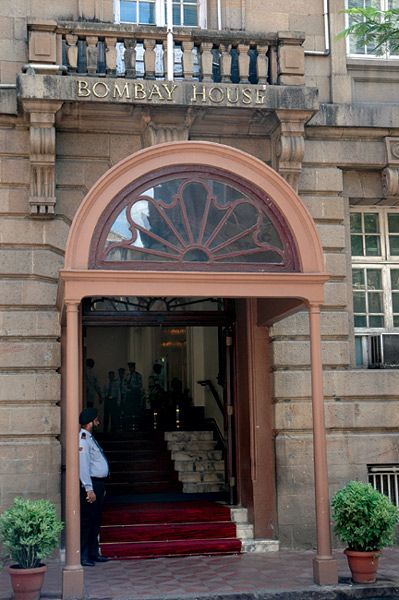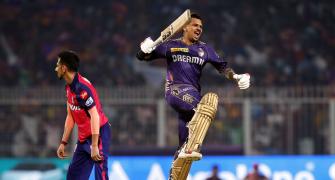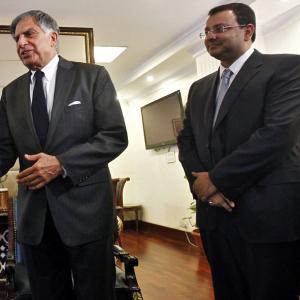 In the coming days, if you find a Titan wristwatch with health sensors or a Voltas air-conditioner providing air free of harmful viruses, the credit should go to a 15-member customer-centricity group, chaired by Harish Bhat, member, group executive council, Tata Sons.
In the coming days, if you find a Titan wristwatch with health sensors or a Voltas air-conditioner providing air free of harmful viruses, the credit should go to a 15-member customer-centricity group, chaired by Harish Bhat, member, group executive council, Tata Sons.
The initiative came from Tata Sons Chairman Cyrus Mistry, who seems to have turned Bombay House, the group’s headquarters, into an evangelist for customer needs such as health and wellness through development of new products and services by group companies.
“What a customer-centricity initiative like this does is this: It takes out three to four key trends, examines them in detail, has capability-building sessions around them and catalyses the formation of projects to leverage it. We want to ensure that they are given due importance by all group companies,” said Bhat.
Apart from him, the group comprises chief marketing officer-level executives from 14 large and small Tata group companies, including Tata Steel, Titan, Indian Hotels, Tata Global Beverages, Tata Chemicals, Tata Elxsi and Tata Capital.
The group has identified health & wellness, premiumisation, adding value in digital space and needs of working women as the broad key trends that will change consumer behaviour in the future and impact multiple industries.
Some of the group companies like Tata Chemicals and Tata Global Beverages have already been leveraging these trends for some time.
But, Bhat said, the key difference this time is “you will see many more companies focused on these three trends and there will be many more products and services tailored around these trends”.
Some of them might be born in a year’s time, while others may take five years to mature. There are early adopters, too.
Following this initiative, Croma has started putting special focus on selling products such as air-friers that come under the health category.
Also, the group’s hyper market chain, Star Bazaar, has increased its focus on the promise of fresh greens as keeping stuff in a refrigerator for a few days is no more considered healthy.
The Tata group has about 400 million direct consumers for their products or services.
Also, it has near a billion indirect consumers all over the world. It is also one of the largest retailers in the country and attracts 75 million footfalls in its stores. Besides, it owns iconic brands such as Taj, Tata Salt, Jaguar Land Rover, Croma, Tanishq and Titan. It also has many fledgeling and new businesses that have a long way to go.
First time at group level
Such product development and marketing initiatives in the group have so far been largely within individual companies. It is probably for the first time that Tata Sons has taken the initiative at such a large scale.
The strategy has many backers. “While diet fads come and go over time, innovative, back-to-basics foods that taste good, are easy to prepare and provide health benefits will have staying power. The first step is knowing where to put your product development efforts,” said Susan Dunn, executive vice-president, global professional services, Nielsen, in its recent report, “We are what we eat”.
Similarly with trends such as premiumisation, that is, offering better quality, features, services or experience for a higher price. Tata Motors was able to use this trend in its new cars, Zest and Bolt, that have most premium features in their segments. One such feature is the new five-inch infotainment and audio acoustics system designed by Harman. Also, these two cars have the 1.2-litre Revotron engine with three driving modes: Eco, city and sport.
“The delivery of ‘better’ by companies is far more tangible today because companies can command far higher prices from consumers than ever before,” said Rama Bijapurkar, author of Never before world: Tracking the evolution of consumer India. “Five or 10 years ago, the delivery of ‘better’ was anaemic. Now, it is more full-blooded.”
Group companies have also accelerated their efforts to add value in the digital space. This has seen Tata Global Beverages using the “Farmer’s First” campaign through a digital platform on Facebook, which connects half a million consumers of Tetley Tea with farmers who grow the tea. The initiative that was launched earlier to connect consumers in Europe with farmers in Africa has now been brought to India to use the digital space in engaging consumers to promote brands.
“Leading companies are leveraging granularity, speed and scalability afforded by monitoring and aggregating digital sources — search and queries, social media trends, feedback to generate rapid, high-quality, and proprietary consumer insights,” said Nikhil Prasad Ojha, head of Bain & Company’s India strategy practice and co-author of the Bain-Google study ‘Adding to cart’: Digital’s impact on FMCG. “Digital is also enabling more iterative and faster product development through online panel based quick-cycle consumer testing.”
Too centralised?
Some are, however, watchful of such a centralised initiative by the Tatas.
“Even within a company, you have different geographies and units. In MNCs like Coca-Cola or McDonald’s, a classic debate is how decentralised should one be. But that is an age-old debate that can go on and on,” said Lulu Raghavan, managing director, global brand consultancy firm Landor Associates. “Companies in the Tata group have an easier job putting customer centricity at the heart of their business, as Tata has identified the key consumer drivers in India at a macro-level,” said Raghavan, who advises many Tata group companies.
YOU AT THE CENTRE OF TATA'S PLANS
HEALTH & WELLNESS
Products with higher nutrition, health benefits
Strategy: Croma selling air-friers that help you make low-fat fries. Hypermarket chain Star Bazar keeping more fresh greens
PREMIUMISATION
Better quality, features, services or experience for higher prices
Strategy: Tata Motors’ Zest mini sedan and Bolt hatchback come with infotainment systems designed by Harman and 1.2-litre Revotron engine with eco, city and sport driving modes
ADDING VALUE IN DIGITAL SPACE
Consumption in the digital space rising
Strategy: Tata Global Beverages using Farmer’s First campaign on Facebook to connect half a million consumers of Tetley Tea reach growers










